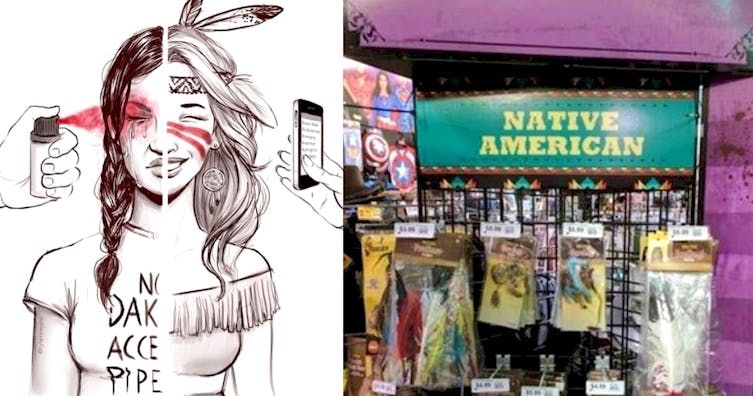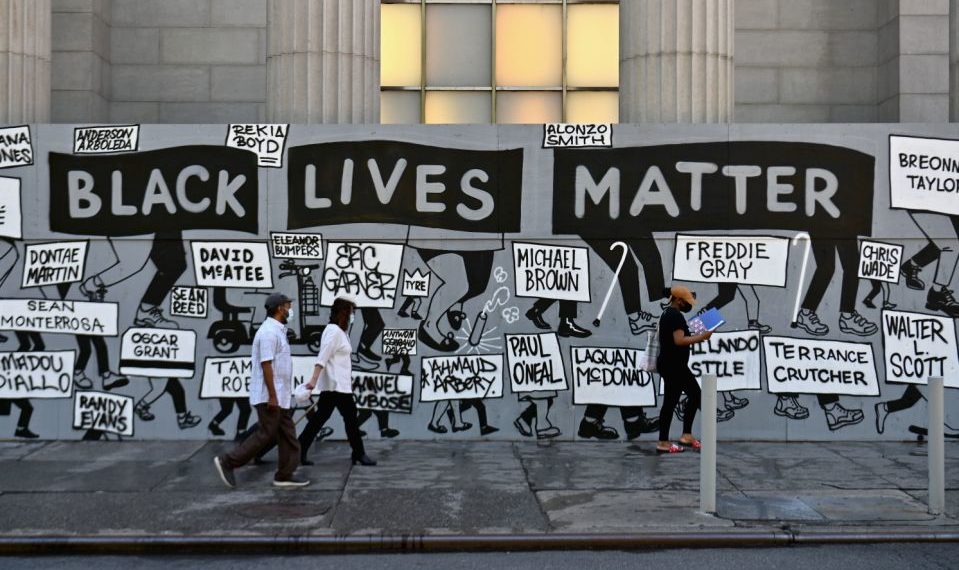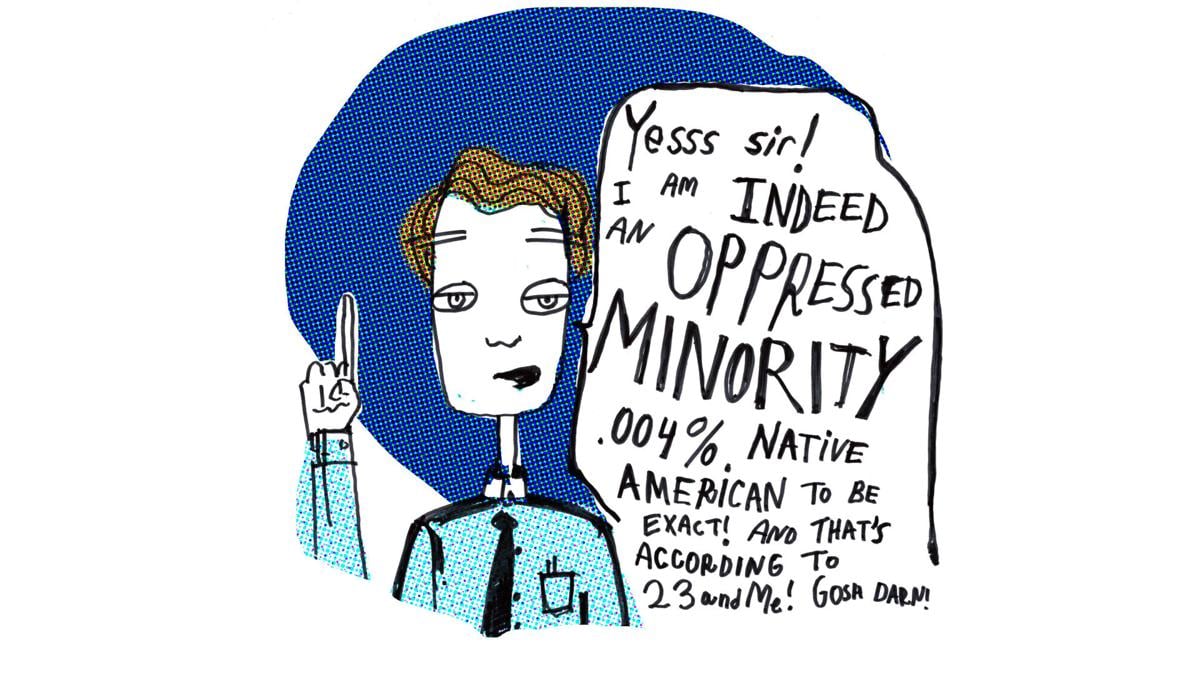At a time that calls for decorum and conformism, can we still speak, dress and act as we please without being aware of the impact of our actions and the weight of their meanings?
Is it in good taste to dress up as Pocahontas for Halloween, wear a tribal loincloth, or promote a foreign product from a culture we know nothing about?
Whether it is involuntary or assertive blunders, welcome to the twists and turns of the obscure theme of cultural appropriation!
Cultural appropriation, but what is it?
A term born in the 1990s, cultural appropriation is defined by the idea that the use of elements of a culture « dominated » by a « dominant » culture would be intrinsically disrespectful and would constitute a form of oppression and the theft of said « dominated » culture.
In simple terms, 3 elements make it possible to discern spoliation:
- Promote a culture that is not one’s own for financial gain
- Mock or disrespect aspects of a culture
- Make use of the codes of a culture without first understanding its history and its implications or without wanting to pay tribute. The intention behind use define appropriation from appreciation.

Strongly linked to a form of racism, cultural appropriation tends to apply a reducing effect on serious facts suffered by a community and to ignore the moral consequences of borrowing on people caught up in the social implication of their culture.

It seems obvious that the coexistence of cultures within the same society, like cultural exchanges, is not only necessary for the survival of our civilization, but also inevitable.
We would certainly not be where we are today if knowledge had not spread from one continent to another over the centuries.
Today particularly, in this context of globalization, many argue that, in a few centuries, the great majority of the world population will come from interbreeding. Going further, we could therefore easily argue that we are doomed to have only one and the same culture.
What differentiates appropriation from simple cultural exchange is that it necessarily takes place within the framework of dominant-dominated dynamics. So let’s imagine a society devoid of all forms of inequality and oppression, where the sharing of wealth on a global as well as national scale would be relatively balanced and where diversity would serve as the norm – in short, let’s remove from history its passages the darkest.
If an individual then decided to take one aspect of the culture of the other and capitalize on it, or more simply to « appropriate » it, the damage caused to the people from which the culture arose would not have the same impact as today.
To give just one example among many, in this utopian universe, a white North American could « appropriate » Native spirituality, in the same way that one can convert to Christianity today and decide to open a store that sells figurines with the effigy of the Virgin Mary.
In fact, the balance of power between the different cultures is still very present.
Now let’s come back to our reality, take an example of recent cultural damage and together try to deconstruct it.
In 2017, designer Marc Jacobs was criticized for showing his muses sporting dreadlocks.
The controversy over the use of a hairstyle, attached to African-American and African culture, by a group of 95% Caucasian models.
The first problem that arises is that of white washing, a key aspect of cultural appropriation: if the stylist wanted so much to honor this hairstyle in his parade, was he really unable to find Afro models? -american women wearing dreadlocks ?
Conversely, it would also have been frowned upon to solicit color models in order to justify filling an ethnic quota, which is called tokenism.
The second problem that arises is understanding the loan. The dreadlocks more than just hair have a spiritual connotation, religious and political important, showing both a respect for history and ethnic pride of the black community.
The final problem is that in the face of criticism, the designer then refused to admit that his inspiration was rooted in African American culture, making the case a perfect example of the difference between cultural appreciation and cultural appropriation.
This incident leads us to reflect on the relationship of the art field as a whole to appropriation, ethics here being the determining factor between appropriation and appreciation.
Many see the ethnic pride of certain communities as a form of chauvinism forgetting or not realizing that these same marginalized communities have for the most part been the historical victims of massacre, slavery and have had to assimilate against their will the culture of their colonists in detriment of theirs.
Can we blame these same communities for wanting to preserve their identity?
And it’s always the victorious who make history.
It is difficult for a population privileged by the historical context to have an objective point of view on the repercussions of the balance of power generated today and from which it benefits.
For « the vanquished », the historical consequences are always intense and the marks clearly visible. There is a feeling of injustice. Dispossessed of their property, cheated, driven into servitude, they still experience very few changes in access to resources and wealth, they who have been and are despised, victims of racism and whose claims collide to the deafness of the actors who take center stage.
Lack of listening and consideration.
This is the first obstacle to equality, which leads us to look at these two currents of thought that are negationism and determinism which aim to use ethnic habits to their advantage.
Spearheads of extremist movements, these thoughts aim to make people believe that everyone’s place is defined by their social rank, their origin, their skin color and, by extension, their culture, by voluntarily obliterating or relieving them of their responsibility. oppressors with regard to attacks on oppressed peoples.
From this perspective, it is almost impossible for the “winners” from dominant cultures to recognize all forms of damage passively caused against others.
These cultures will even tend to feel easily attacked when their historical privileges are called into question, they will then pretend to encounter a form of incomprehension and they will place themselves in the role of the victim playing on the feeling of fear and wearing out. of nationalism as an intersocial shield.
To illustrate this, let’s take a quick look at the recent news of this year 2020.

photo by Angela Weiss / AFP
Following the assault and murder of African-American Georges Floyd, the Black Lives Matter movement and network (which we will call #BLM hereafter) launched in 2013 by Patrisse Cullors, Alicia Garza, and Opal Tometi, experienced renewed impact and visibility.
#BLM’s mission is to remind people that the feeling of fear faced by the black community is a daily struggle; segregation, police violence and social inequalities.
We are talking here about ordinary and systemic racism, strong in Europe and much more in North America.
A recent counter-movement then appeared in the form of All lives matter, refusing to see the symbolism of the #BLM movement, and coming to refuse to recognize the value of the lives of people of color and the privileges associated with white populations, this by playing in bad faith, by stopping only under the name #BLM and therefore by trying to prioritize the suffering.

As a reminder, the terms Black Lives matter are not intended to say that the life of blacks is more important but that it is as important as that of anyone. And through the prism of visible violence against blacks, that human respect must be an absolute right, not only for blacks but for all racialized communities.
It is obvious that all lives matter, #BLM only illustrates the relentlessness that is systematically done towards a community.

Can we blame a privileged lineage for the wrongs caused by their ancestors?
This question may sound absurd. Although this descent is not at the origin of the expropriations, it is important to realize that using one’s privileges amounts to condoning injustices and being an actor in them, inequalities being always present.
Does the fight against inequalities create new inequalities?
Beware of overflows under cover of justice.
It is often difficult to draw a line between racism, intolerance and ignorance.
When one is deeply immersed in a struggle, carried by one’s own convictions, it is easy to systematically ascribe bad intentions to foreign actors.
If I have been fighting racism all my life, can I be objective about my own abuses? And how to break the vicious circle while avoiding creating new forms of discrimination.
It is for this reason that teaching, listening and information are important; transmit an idea with hindsight, be clear in its associations of ideas, teach rather than force a doctrine and exchange.
This is what makes the difference between a passionate exchange and a heated exchange.
Struggle and disinformation?
The Internet is a vast kingdom of information where billions of data swarm in rail cars every second.
It is therefore easy to get lost or base your argument on unreliable references.
The work sourced and referenced is all the more important as our love of conspiracy theories can push us to prejudice the work already provided and that of experts.
It is certain that this article is only intended to offer lines of thought but we also hope that it will allow you to wonder about what cultural appropriation is and its implications and to answer even partially to questions. questions such as:
- Why is this wrong?
- Can we condemn ignorance about a culture?
- Does the war on cultural appropriation create new forms of racism?
- Should we speak of racism or intolerance?
- A form of racism from and against Western white men?
- And the place of art?
- What about cosplay and Halloween?
As said earlier, cultural appropriation is quite a complex notion to deal with and it is difficult if not impossible to separate it from an underlying form of racism.
Here is a little guide that may be able to help you see more clearly.

While waiting for items to resume on a more regular basis, take care of yourself, wash your hands, wear a mask.
Godspeed !
Glossary
Racism: Ideology according to which certain races are superior to others.
Intolerance: Tendency not to endure, to condemn what displeases in the opinions or conduct of others.
Nationalism: Exaltation of national feeling; passionate attachment to the nation ( chauvinism , patriotism ); doctrine based on this feeling.
Determinism: Philosophical doctrine according to which all events, and in particular human actions, are linked and determined by the chain of previous events.
Ethnic Habitus: Ethnic Habitus is a sociological concept: it is a set of habits, acquired dispositions and practices characteristic of a particular ethnic group in a multiracial society.
White privilege: Invisible but systematic advantages enjoyed by so-called “white” people only because they are “white” which allows them to profit involuntarily, or even unconsciously, from the fact that other people are racialized and therefore discriminated against.
White washing: neologism stemming from American anti-racist activism which describes the fact of hiring white-skinned actors and actresses to play racialized characters, whether real or imagined.
Tokenism: recent word, translated from English, derived from the word « token », which translates as « token ». The term primarily refers to the practice of a group or organization including people from minorities, in order to be able to claim to be inclusive.
Positive discrimination: Positive discrimination or positive action or de-discrimination or measures correcting inequalities is the fact of « favoring certain groups of people who are victims of systematic discrimination »
Different forms of racism: Ordinary and systemic – Structural – Institutional – Internal – Cultural – interpersonal
References
Article written in partnership with Aishah Seivwright, Community Organizer for Black Mental Health Connections & Midnight Kitchen Collective (Montreal).
- » Cultural appropriation – Oxford Reference «
- “ What’s Wrong with Cultural Appropriation? These 9 Answers Reveal Its Harm »
- Some definitions of the notions of culture and interculturality
- Patrisse Marie Cullors-Brignac , “ We didn’t start a movement. We started a network. «
Unnecessary Knowledge, the unnecessary knowledge tablet that will allow you to shine in society and wow even your most savvy friends.




